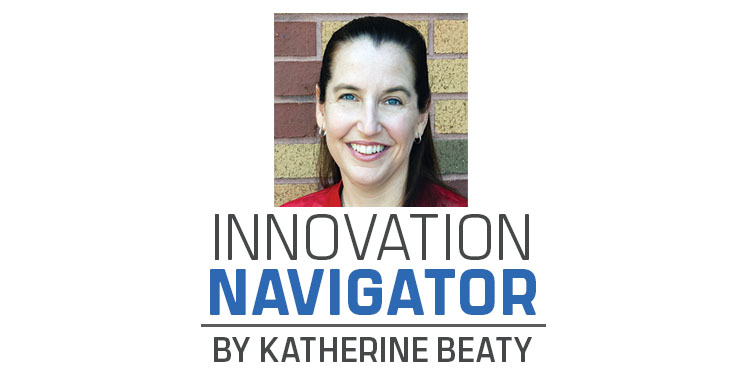By Katherine Beaty
I recently attended a class about thinking beyond patterns in data, and it got me wondering about statistics. Now, I know what you're thinking: “Oh great, numbers. Wake me up when the pie charts start attacking.” But hear me out! Statistics aren’t just a bunch of random figures meant to confuse you. They tell us weird, wonderful, and downright shocking stories.
For example, did you know that 90% of the world’s data has been created in the last two years? That means that in just two years, we generated more data than all of human history before it. And you thought your email inbox was overwhelming! This rapid explosion of data is reshaping everything, including my personal favorite topic, parking! In the parking industry, stats aren’t just fun; they’re the secret sauce to smarter mobility solutions. (And who doesn’t love a good sauce?)

Fun and totally random statistics
Besides being mind-blowing, the following statistics prove that stats are awesome:
1. The average person walks the equivalent of five times around the Earth in their lifetime. That’s about 115,000 miles! Which explains why my shoes keep disintegrating. This is also why I fully support scooters and micro-mobility options because my legs are TIRED.
2. There’s a 1 in 9 million chance of being killed by a vending machine. That’s twice as likely as winning the lottery. So, if you’ve ever stood in front of a vending machine, shaking it because your bag of chips got stuck, CONGRATULATIONS, you’re a daredevil. Also, I now have a new respect for parking spots near snack stands. Parking AND snacks? That’s a life-saving combo.
3. You’re more likely to be bitten by a New Yorker than a shark. Yes, folks, this is a real stat. That means your odds of being attacked on your next beach trip are way lower than your odds of getting into a heated “THIS IS MY SPOT” argument outside a coffee shop in Manhattan. I’d love to see the stat on how many parking disputes end in a dramatic slow-speed chase through a parking garage.
4. The middle stall in public restrooms is the most used. Apparently, when given multiple choices, most people subconsciously pick the middle one. Which means the same thing probably happens in parking lots. So, if you’re ever wondering why the middle row is always full but there’s plenty of space on the far end, well, now you know. Parking, just like bathroom stalls, follows the great law of, “Eh, this one looks good enough.”
Viewing parking through statistics
The following statistics help to illustrate the true value of parking:
1. The average U.S. driver spends 17 hours per year searching for parking. That’s roughly $345 wasted in time, fuel, and emissions per driver in the U.S. But innovative parking technology is turning that around, reducing search time and making cities more efficient. That means more time enjoying where you’re going and less time circling the block. And for me, that means a fresh new pair of Nike Air Force 1s instead of gas money wasted driving in circles.
2. A Hong Kong parking spot sold for $1.3 million in 2021, making it the most expensive parking spot ever, with someone paying more for a single parking space than most people will spend on a home in their lifetime. Now, I love parking, but if I’m dropping more than a million bucks, it better come with valet service, a heated garage, and a personal butler who tells me, “Sir, your space is always reserved.”
3. New York City rakes in more than $500 million a year in parking violations. Half a BILLION dollars. That’s not a parking system — that’s a business model! Instead of looking at this as a fine, let’s call it what it really is: A subscription service you didn’t sign up for but somehow can’t cancel.
Why parking deserves more love
Statistics like these aren’t just entertaining. They show how parking shapes mobility, efficiency, and urban planning. If people spend 17 hours a year searching for parking, that’s a productivity issue. And if cities are pulling in half a billion dollars in fines, it’s not about punishment, it’s a sign that we need more accessible and well-communicated parking solutions.
Beyond parking, behavior-driven statistics, like the middle stall preference, help industries refine user experiences. Imagine parking solutions that learn from human tendencies and dynamically guide drivers to preferred spaces. Smart parking is more than just tech; it’s about making life easier, reducing stress, and keeping cities moving smoothly.
So, the next time someone says, “Statistics are boring,” hit them with the vending machine stat. Then remind them that parking isn’t just about finding a spot, it’s about how we move, how we live, and how we make cities more efficient. And that, my friends, is pretty darn fun.
Now, if you’ll excuse me, I need to go admire a well-designed parking facility. It’s a beautiful thing when done right.
KATHERINE BEATY is executive vice president of customer experience for TEZ Technology. She can be reached at katherine@teztechnology.com.















